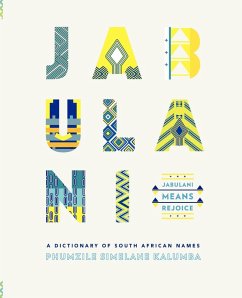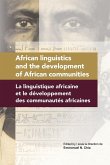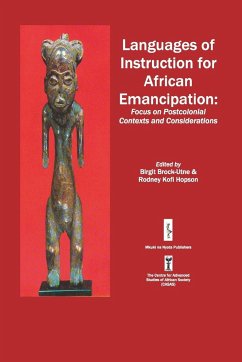Jabulani Means Rejoice is a dictionary comprised of hundreds of African names in local South African languages, meticulously assembled and expounded upon for the curious reader. Names are listed in alphabetical order with gender indications, as well as information regarding their ethnographic origins and meanings. Yet, Jabulani Means Rejoice is so much more than simply a list of names and their meanings. The author skilfully interweaves cultural context and history, including issues surrounding naming rituals, domestic disputes and the curse of the evil eye. As a reference work, Jabulani Means Rejoice stands as an invaluable contribution to the growing interest in African cultural history. With its names ranging from the traditional to the unconventional, it will appeal to linguists, family historians and anyone with an interest in names.
Hinweis: Dieser Artikel kann nur an eine deutsche Lieferadresse ausgeliefert werden.
Hinweis: Dieser Artikel kann nur an eine deutsche Lieferadresse ausgeliefert werden.








